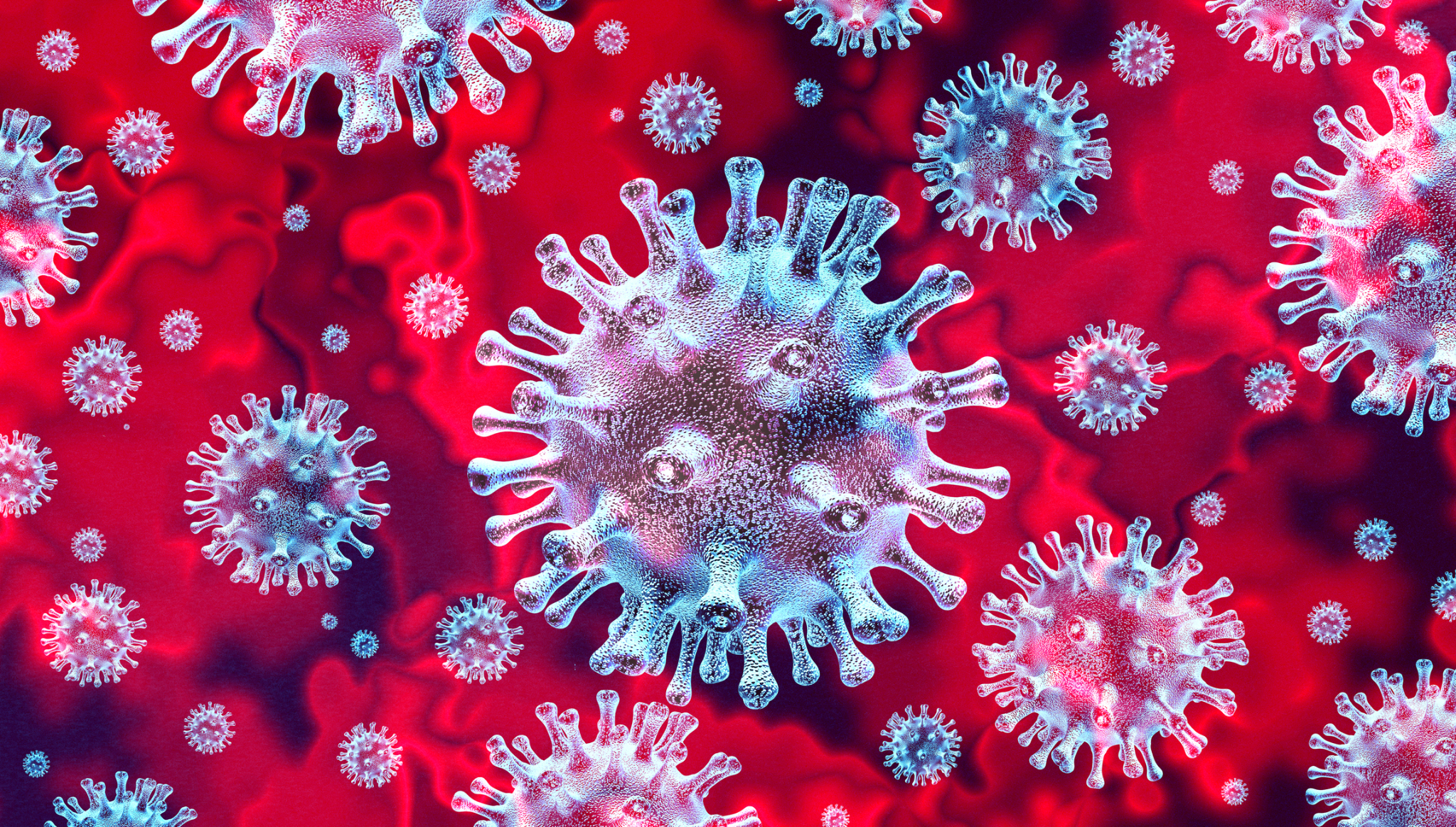
There is a great deal of emphasis being given these days to the importance of having a healthy immune system, and many of the signs of aging are directly linked to having a low level of immunity. Those who are prone to getting sick are often those that have poor immune systems, and this is something that can be avoided through a healthy immune system. The problem is, many people simply do not know what to do to keep their immune systems healthy. A healthy diet is often one of the first things that go when someone gets sick, and it is very important to ensure that your immune system stays strong.
Stress can also be a huge factor in causing an unhealthy immune system, and it is important to find ways to reduce stress if you are to keep your body healthy. The immune system needs to be kept strong, and exercising is just the perfect way to keep it healthy. It is also important that a healthy diet is followed, and this should include plenty of fresh fruits and vegetables. Staying healthy should never be taken for granted, and it is important to make sure that each and every member of the family eats properly and regularly.
Keeping a healthy immune system is important, and it should never be overlooked. If someone in your family has been diagnosed with an illness, you must talk to the doctor immediately. Even if they have not been ill, a healthy immune system is still very important and can be the difference between life and death.
How Do You Know If Your Immune System Is Healthy?
When it comes to knowing how to know if your immune system is functioning properly, you need to have some idea of what to look for. This system is responsible for fighting off infections and helping to repair the tissue that has been damaged by pathogens like bacteria and viruses. In order for this system to do its job effectively, there are a number of signals that indicate if your immune system is working correctly or not.
Some of the common signs of a healthy immune system include having fewer colds and flu, feeling more energetic and less tired, having an improved sense of well-being, and avoiding the common cold. There are other indicators as well, and the most common ones include lowered levels of cholesterol, blood pressure, and heart rate, better digestive functions, and increased energy. If you’ve been experiencing any of these signs of a healthy immune system, it’s important to pay close attention to them.1 You might be surprised at how quickly you can improve your immune system by taking a few simple steps.
The above-mentioned signs of a healthy immune system are just a few of the things that you should look for when evaluating your immune system. If you can, start examining your immune system as soon as possible and see if you can improve your immune system by taking a couple of simple steps.2
The Benefits of a Healthy Immune System
With the abundance of information available on the internet about the benefits of a healthy immune system, many people wonder if supplements or vitamins are needed. After all, healthy immune systems can be achieved by eating healthy and living healthy. However, many people need to take supplements to achieve their optimal immune system.3
A healthy immune system is the cornerstone of good health. It’s not only important for your overall well-being, but it also helps you fight off disease, prevents illness, and maintains overall health much longer than you would without it. And, although eating healthy is the first step toward maintaining a healthy immune system, supplements aren’t necessarily a bad idea. In fact, taking a daily supplement can be one of the most important aspects of your health and is absolutely crucial to your long-term success. Supplements provide the building blocks of the B-vitamins and other vitamins that your body needs to function properly. However, some vitamins are better than others and there are some vitamins that your body needs more of than others.
The first thing you need to know is what the main healthy immune systems nutrients are. They’re the vitamins A, C, and E, the minerals magnesium, zinc, and folic acid, and the natural plant chemicals biotin and folate.4 Most of these nutrients can be taken in supplement form and don’t need to be combined. There are only a handful of substances that your body cannot produce naturally and must obtain from food, including the protein glutathione. So, those three nutrients are the most important and require a high level of intake to achieve and maintain the best health possible.5
There are many ways you can increase the benefits of healthy immune systems. The easiest way is to ensure you are getting enough of the B-vitamins, particularly Biotin, in your diet. It’s a vitamin found in whole grains, nuts, and seeds, and is especially important to your good health when used in the production of energy and strength. The second benefit of healthy immune systems is to eat healthy, unprocessed foods. This means avoiding fast food, junk foods, sugars, and anything else that is overly processed.
These tips can help anyone of any age to maintain a healthy body that functions well. Of course, there’s no such thing as a ‘one size fits all’ approach to healthy eating or exercise. However, by making simple changes to your lifestyle, you can begin to reap the benefits of a healthy immune system. You simply need to start where you are now and work your way up to healthier habits.
Sugar and Your Child’s Immune System
You have probably heard a lot about sugar and the immune system, but what is the relationship between sugar and the immune system? As we know, sugar and most other processed carbohydrates can have some benefits, but there are harmful ones as well. The benefits and risks of sugar consumption depend upon how it is digested, how much it is consumed, and what is left in the finished product. You might be interested in learning a bit more about this substance and how it affects your child’s health.
Does sugar suppress your child’s immune system? It has been studied and reported that sugar may reduce the number of B lymphocytes (white blood cells) which are crucial to immunity. B lymphocytes perform several functions within the body. First, they release chemicals called antibodies which go on to fight infections. Second, B lymphocytes help regulate the flow of white blood cells through the blood and cellular tissues. Finally, B lymphocytes are responsible for moving monocytes, which are a type of cell that helps maintain healthy skin, hair, and nails, from cell to cell.6
There are a number of factors that contribute to high sugar intake levels. For instance, children who live in very busy, noisy households may find it difficult to control their sugar intake due to the distraction. In addition, refined sugar is often added to many foods which already have a high sugar content such as cookies and cakes. However, sugar itself is not the only culprit; another common contributor is hydrogenated oils, which tend to raise the LDL or bad cholesterol levels and decrease the good HDL or good cholesterol levels.
Does Excess Sugar Intake Suppress Your Child’s Immune System?
The answer is “no.” In fact, sugar has been shown to be beneficial to children’s health. It can help protect them from developing allergies and asthma and can even help lower the risk of developing Type II diabetes.
Does sugar affect your child’s weight? It can have an effect, but it is not the type that you see in movies. Although the artificial sweeteners may fool the brain into thinking the child is ingesting less sugar, the body will still store excess sugar as fat. This is because sugar stimulates the brain to release more glucose which leads to extra calories (fat). For this reason, limiting sugar in your child’s diet will help them gain less weight.
Does sugar cause your child to get sick more often? Again, there are no real negative effects of sugar on children. However, there are long-term health consequences to eating too much sugar. Children who consume large amounts of sugar have been found to have higher rates of obesity, diabetes, and heart disease. Therefore, limiting sugar intake during the first years of a child’s life can help them develop a healthy diet for a longer, healthier life.
How to Know If Your Child Has a Suppressed Immune System?
One of the most frightening things about a child getting sick is not knowing what’s going on with their bodies. They might have an illness they think they have but in actuality, their immune system is being suppressed. What can you do as a parent?
First of all, you need to make sure that your child gets enough vitamins and nutrients. Vitamin D plays an important role in the health of your immune system. Children who lack vitamin D are more susceptible to common childhood illnesses such as hay fever, asthma, eczema, and a number of diseases. So, you need to make sure your baby receives enough of this vitamin.7
You also need to watch out for what’s happening inside your child’s intestines. When our immune systems become suppressed, toxins and undigested food can build up in our intestines. These undigested foods release toxins throughout our bodies and into the air. A child with a suppressed immune system can then become infected with cancer cells. Don’t ignore this, it’s happening.
Another thing that you need to do is watch for your child’s weight. If your child is not gaining the same amount of weight he used to, then they may be lacking some essential nutrients. Again, a child with a suppressed immune system cannot process and absorb the necessary nutrients. So, if they don’t gain the weight they need, it can have a dramatic effect on their immune system.
Of course, you don’t want to rely on prescription medications alone. Natural remedies can be just as effective as prescription medications when it comes to how to know if your child has a suppressed immune system. Make sure that you do some research before you decide which option is best for your child. You can always consult with your doctor or health care professional.8
Image Credits
Science Node / Google Stock Images
Integrity Urgent Care / Google Stock Images
Biotics Research Reserve / Google Stock Images
Times Now / Google Stock Images
USC Keck / Google Stock Images
1 “Immune system explained – Better Health Channel.” 17 Dec. 2017, https://www.betterhealth.vic.gov.au/health/conditionsandtreatments/immune-system Accessed 24 Aug. 2021
2 “How to boost your immune system – Harvard Health.” https://www.health.harvard.edu/staying-healthy/how-to-boost-your-immune-system Accessed 24 Aug. 2021.
3 “Help Boost Your Immune System and Prevent Illness I Banner.” 23 Mar. 2020, https://www.bannerhealth.com/healthcareblog/teach-me/how-you-can-boost-your-immune-system Accessed 24 Aug. 2021.
4 “Best Immunity Boosters: Review Top Immune System Supplements.” 18 Jun. 2021, https://www.heraldnet.com/marketplace/best-immunity-boosters-review-top-immune-system-supplements/ Accessed 24 Aug. 2021.
5 “Boost the Immune System | University of Maryland.” https://www.umms.org/coronavirus/what-to-know/managing-medical-conditions/healthy-habits/boost-immune-system Accessed 24 Aug. 2021.
6 “Definition of B lymphocyte – NCI Dictionary of Cancer Terms.” https://www.cancer.gov/publications/dictionaries/cancer-terms/def/b-lymphocyte Accessed 24 Aug. 2021.
7 “Vitamin D Deficiency: Symptoms & Treatment – Cleveland Clinic.” 16 Oct. 2019, https://my.clevelandclinic.org/health/articles/15050-vitamin-d–vitamin-d-deficiency Accessed 24 Aug. 2021.
8 “Suppressed Immune System: What Is It, Causes, and More | Osmosis.” https://www.osmosis.org/answers/suppressed-immune-system Accessed 24 Aug. 2021.





